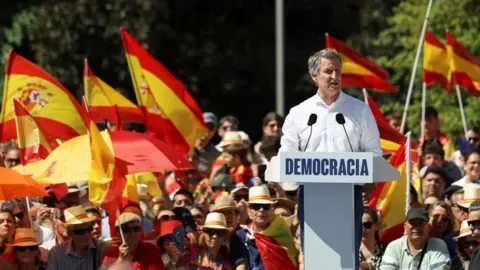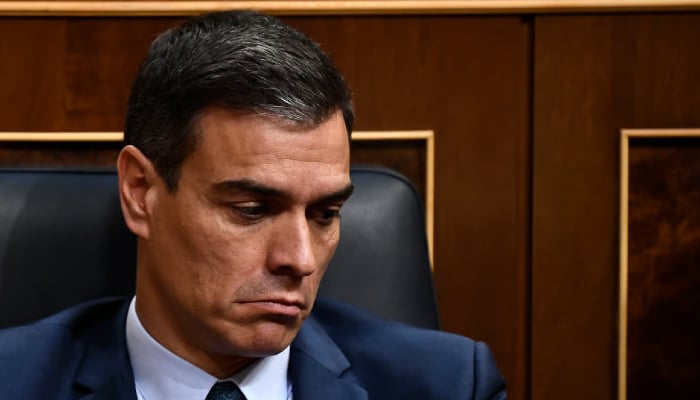Introduction
Spanish Prime Minister Pedro Sánchez has issued a public apology following a deepening corruption scandal involving senior members of his Socialist PSOE party. The controversy has sparked nationwide protests, demands for Sánchez’s resignation, and intense political pressure on his fragile coalition government.
Santos Cerdán Resigns, Faces Supreme Court

At the heart of the scandal is Santos Cerdán, the secretary of the PSOE and a close ally of Sánchez. Cerdán has stepped down ahead of a Supreme Court hearing set for 25 June 2025, after a judge suggested he may have helped improperly award public contracts in exchange for kickbacks.
Cerdán maintains his innocence, stating: “I have never committed a crime nor have I been complicit in one.” However, a Civil Guard investigation, based on secret recordings, implicates him along with former Transport Minister José Luis Ábalos and his ex-adviser Koldo García in a €620,000 bribery scheme.
Pedro Sánchez: ‘Zero Corruption Does Not Exist, but Zero Tolerance Must’
Speaking at a press conference from PSOE headquarters in Madrid, Sánchez admitted he had misplaced his trust in Cerdán. He denied any personal involvement in the scheme and ruled out calling early elections.

“There is no such thing as zero corruption,” said Sánchez, “but there must be zero tolerance when it occurs.” He added that he would restructure the party’s leadership but stay the course until 2027, the scheduled general election year.
Opposition Calls for Resignation
The conservative Popular Party, led by Alberto Núñez Feijóo, has seized on the scandal. At a large protest in Madrid under the slogan “Mafia or Democracy”, Feijóo declared: “Survival is no longer an option. This government must end.”
He called on Sánchez’s coalition partners, including Deputy Prime Minister Yolanda Díaz of the leftist Sumar party, to abandon support for the embattled prime minister. Díaz has also demanded clear explanations.
The Bigger Picture: Fragile Coalition Faces Test
Sánchez’s minority coalition has long been under pressure. Despite losing the 2023 national elections to the Popular Party, Sánchez retained power by forming a fragile alliance with smaller regional and leftist parties. This scandal could unravel that balance.
This is not Sánchez’s first political crisis. In April 2024, he temporarily stepped back from duties when the courts opened a probe into alleged irregularities involving his wife. Then too, he returned to power after emotional public appeals and a firm denial of wrongdoing.
The Evidence: Tapes, Payments, and Political Fallout
The Supreme Court judge based his investigation on a four-year collection of recorded conversations involving Koldo García. These tapes reportedly capture discussions about illicit payments between García, Cerdán, and Ábalos. Transcripts leaked to Spanish media have intensified scrutiny and public anger.
Ábalos, who was dismissed in 2021 and later resigned from the party in 2024, continues to serve as an independent MP. Both he and García have been summoned to testify. Ábalos has denied all wrongdoing.
What’s Next for Pedro Sánchez?

Despite his apology and pledge to overhaul the party leadership, Sánchez’s political future remains uncertain. He has committed to continue “working for clean politics and democratic renewal,” but pressure is mounting both from within his coalition and from a highly mobilized opposition.
The scandal has deeply tarnished the PSOE’s image. Whether Sánchez can navigate this storm without calling early elections may depend on coalition unity and the public’s response to the ongoing judicial proceedings.
Conclusion
The Cerdán corruption scandal is one of the biggest political crises of Pedro Sánchez’s tenure. As calls for his resignation grow louder and more revelations surface, Spain’s government faces a critical test of legitimacy. Sánchez may have apologized, but the road ahead looks steep and uncertain.









